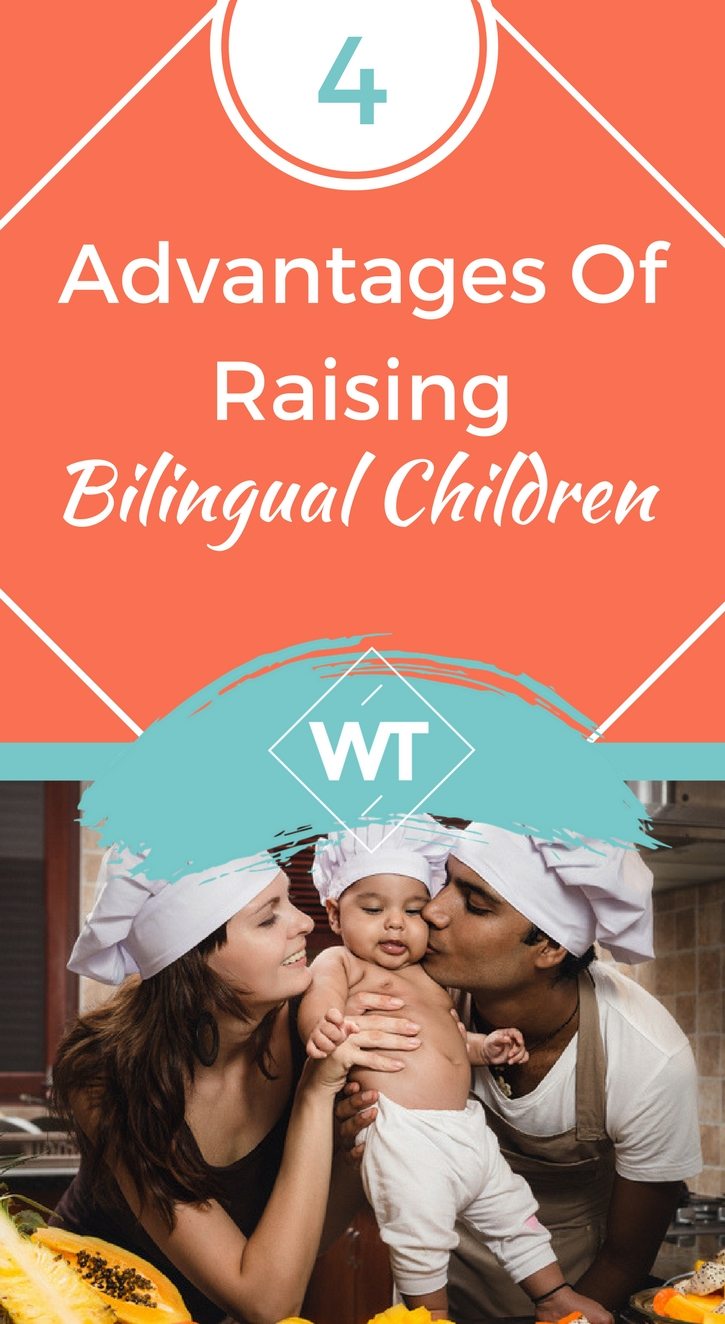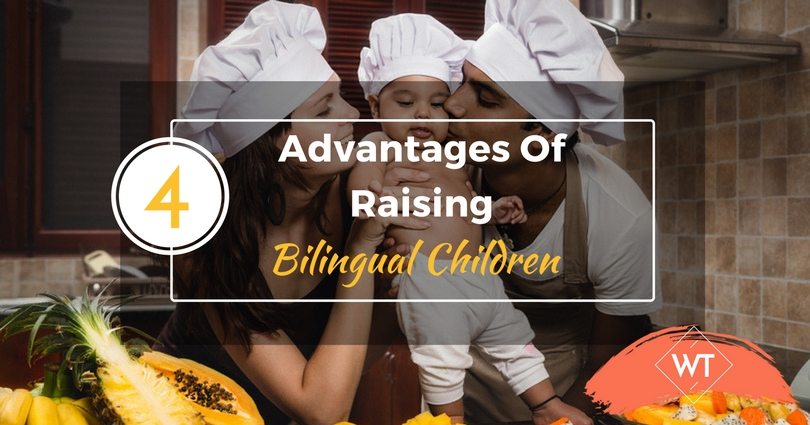4 Advantages Of Raising Bilingual Children

If you talk to a man in a language he understands, that goes to his head. If you talk to him in his own language, that goes to his heart. ~ Nelson Mandela (Tweet this)
I am the mother of a toddler—a boy, of a year and a half. He is half Spaniard and half American. He is also very active and social and that almost always leads to us having conversations with strangers.
One of the most common questions people ask us when they learn that we are bilingual is “Are you teaching him both languages already?” The answer is YES! And I hope that if there is a second language in your home you do the same for your children because the advantages are many (no matter what the second language is).
While living in California I met many people from families whose primary language was different than English, yet, as adults, they could no longer speak it. The language had been lost from one generation to the next, often because of misconceptions about what growing up with two languages does to a child. They have heard, for example, that it might slow them down, or make integration harder, but studies have actually pointed to distinct advantages in these areas.
Kids develop at different rates no matter what language you are teaching them.
Our son already has a pretty good vocabulary in both English and Spanish and considering his age, that is considered early. I know kids older than him that are monolingual and yet are behind the curve (I’m not bragging here. I’m pointing out that where he has two, they have one, and yet, still, his language skills are beyond theirs. This disproves the theory that kids become confused by the second language.). Again, kids will develop at the speed they will develop, regardless of whether the language you teach at home stands alone or is joined by a second language.
Advantages of raising bilingual children:
Kids are very flexible and will usually catch up to their peers at some point. So even if raising a child to be bilingual did delay their early communication (which it does not) you should still take that challenge on, because in the future not only will they still catch up, they will also enjoy all of the following other advantages:
1. Promotes superior intellectual development
Our brain is amazing and even before we can speak, it is preparing itself for the task. When the baby hears different languages neurological connections are being made and the brain is morphing. Because the brain in bilingual children forms to access more than one language, it develops differently than that of a monolingual child and these differences have a positive effect over areas other than language.
Bilingual children have brains that develop stronger executive functions (meant to organize and plan thought more efficiently).
This increases the problem-solving capabilities of bilingual children as well. In the same manner, it improves short and long term memory, stimulates creativity, and facilitates the acquisition of a third language later in life.
2. It gives bilingual children a socio-cultural edge:
Technology has allowed us to shrink the world! Well, not exactly, but it is clearly a more-integrated place. Traveling is easier and more affordable and the internet brought ways in which we can communicate with people from all over the world.
Speaking more than one language can not only be very useful to increase an individual’s capacity to communicate, but can also increase one’s capacity for socialization and decrease shyness.
Gone are the days in which we thought that to get integrated the kids had to only speak the language of the country in which they were living.
Children are so amazing at learning that they can pick up the language of the country they live in even if at home everybody spoke their own, different, mother tongue. They might mix up some words here and there at the beginning (especially if both languages are similar in sound), but with time these mistakes will disappear and they will have the ability to reach a larger social circle.
3. Being bilingual can make them money:
Not long ago, a second language was indispensable for only a few positions. Today, with increased competition and the use of the internet, a second language can make or break the chances of acquiring a much larger number of jobs, increasing the market for your business, or even getting a promotion.
If you think that this only true of the most-used languages and that your mother tongue wouldn’t help a child get ahead anyways, think again! Remember that growing up bilingual facilitates learning a third language later on when the children are of school age.
4. A second language might make them healthier:
There have been several studies that indicate that bilingual brains can delay the onset of Alzheimer disease and symptoms of dementia. Among their findings was that even though bilingual individuals are not immune to these ailments they seem to appear much later in life (at least 5 years later on average) than in monolingual individuals.
So if you are lucky enough to be in the half of the world population who is capable of speaking a second language, make sure you give your children the gift of being able to do the same as well by raising them bilingual!
One language sets you in a corridor for life. Two languages open every door along the way. ~ Frank Smith (world-renowned Psycholinguist) (Tweet this)









Leave a Reply